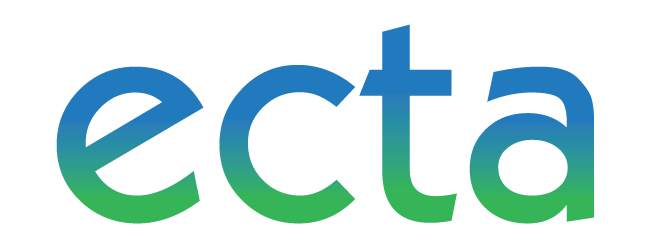Part C of IDEA
Updated February 5, 2026, 2:36 PMPart C of IDEA—the Program for Infants and Toddlers with Disabilities—is a federal grant program that assists states in operating a comprehensive statewide program of early intervention services for infants and toddlers ages birth–2 with disabilities, and their families.
Welcome, Part C Coordinators!
The Office of Special Education Programs (OSEP), the Early Childhood IDEA Centers, and The IDEA Infant & Toddler Coordinators Association (ITCA) provide materials as part of a process to orient you to your new role as a Part C Coordinator and to the TA Center Network. The cross-center (CIFR, DaSy, ECTA, NCPMI, and The Rhonda Weiss Center) collaborative orientation process includes a welcome letter, orientation conference calls, and an introduction to technical assistance partners who can help you in your role.
Download PDF: Part C of IDEA — OverviewPart C Overview
This overview has foundational information about the Part C system that you can return to as needed and share with partners.
1. What is the purpose and philosophy of IDEA Part C?
"Congress finds that there is an urgent and substantial need—
- to enhance the development of infants and toddlers with disabilities, to minimize their potential for developmental delay, and to recognize the significant brain development that occurs during a child's first 3 years of life;
- to reduce the educational costs to our society, including our Nation's schools, by minimizing the need for special education and related services after infants and toddlers with disabilities reach school age;
- to maximize the potential for individuals with disabilities to live independently in society;
- to enhance the capacity of families to meet the special needs of their infants and toddlers with disabilities; and
- to enhance the capacity of State and local agencies and service providers to identify, evaluate, and meet the needs of all children, particularly minority, low-income, inner city, and rural children, and infants and toddlers in foster care."
When the Infants and Toddlers with Disabilities Program was created in 1986, parents, professionals and advocates worked to ensure that three crucial themes provided the foundation for the legislation:
- Infants and young children are viewed as whole persons whose needs must be met by service strategies that cut across the traditional discipline, programmatic and funding categories, and boundaries.
- The development of infants and young children can best be fully appreciated, understood, and promoted within the context of the family environment.
- Early intervention is most effective when parents are respected and empowered as consumers and as team members collaborating with professionals.
Part C is NOT intended to be a stand-alone program serving this population. The intent of Part C is to build interagency partnerships among existing state agencies for health, education, human services, and developmental disabilities.
"It is the policy of the United States to provide financial assistance to States—
- to develop and implement a statewide, comprehensive, coordinated, multidisciplinary, interagency system that provides early intervention services for infants and toddlers with disabilities and their families;
- to facilitate the coordination of payment for early intervention services from Federal, State, local, and private sources (including public and private insurance coverage);
- to enhance State capacity to provide quality early intervention services and expand and improve existing early intervention services being provided to infants and toddlers with disabilities and their families; and
- to encourage States to expand opportunities for children under 3 years of age who would be at risk of having substantial developmental delay if they did not receive early intervention services."
2. What federal statute establishes the Part C system?
In 2004, the Individuals with Disabilities Education Improvement Act (IDEA) reauthorized a The Individuals with Disabilities Education Act. Part C of IDEA is established in 20 U.S.C. Chapter 33, Subchapter III.
IDEA began as a civil rights law in 1975 to provide access for students with disabilities with a Free Appropriate Public Education (FAPE), and it was later recognized that students with disabilities and their families needed additional support in the education process. By 1986, Congress recognized that benefits in the education process can be gained by supporting the child's learning, and also the family at the birth of the child. Congress therefore amended IDEA to include Part C (originally Part H): the option for states to support infants and toddlers and their families.
Each state's lead agency is responsible for making sure that all statutory provisions of the law are understood and put into practice (enacted) consistently across the state. There are fourteen sections to the Part C Statute:
- 20 U.S.C. §1431 — Findings and policy
- 20 U.S.C. §1432 — Definitions
- 20 U.S.C. §1433 — General authority
- 20 U.S.C. §1434 — Eligibility
- 20 U.S.C. §1435 — Requirements for statewide system
- 20 U.S.C. §1436 — Individualized family service plan
- 20 U.S.C. §1437 — State application and assurances
- 20 U.S.C. §1438 — Uses of funds
- 20 U.S.C. §1439 — Procedural safeguards
- 20 U.S.C. §1440 — Payor of last resort
- 20 U.S.C. §1441 — State interagency coordinating council
- 20 U.S.C. §1442 — Federal administration
- 20 U.S.C. §1443 — Allocation of funds
- 20 U.S.C. §1444 — Authorization of appropriations
3. What federal regulations shape the Part C system?
Regulations are the rules or laws that describe how to implement the laws that Congress enacts. The rules that govern the IDEA are in the Code of Federal Regulations (CFR). Regulations for Part C are found in Title 34, Subtitle B, Chapter III, Part 303, and are issued by the Office of Special Education and Rehabilitative Services (OSERS), Department of Education.
These regulations define how the program will be implemented, and states are obligated to have a process that ensures that these regulations are implemented. It might be that the state has state statutes, codes, or regulations to establish the federal requirements, or, you might only have written policies. State statutes and regulations can be stricter than federal statute or regulations, but they cannot be less restrictive, nor can they provide fewer protections.
Periodically, the U.S. Department of Education issues new or revised regulations to address the implementation and interpretation of the IDEA. Whenever new or revised regulations are proposed, these are published in a Notice of Proposed Rulemaking (NPRM) in the Federal Register, and the public has an opportunity to submit written comments for 75 calendar days.
At times, clarifications or legal interpretations of the federal requirements are needed. Attorneys with the Office of Special Education Programs (OSEP), Department of Education, provide this guidance for IDEA.
The federal regulations for Part C were revised and published in 2011, and are arranged into subparts of 34 CFR §§303.1–303.734:
- Subpart A — General
- Subpart B — State Eligibility for a Grant and Requirements for a Statewide System
- Subpart C — State Application and Assurances
- Subpart D — Child Find, Evaluations and Assessments, and Individualized Family Service Plans
- Subpart E — Procedural Safeguards
- Subpart F — Use of Funds and Payor of Last Resort
- Subpart G — State Interagency Coordinating Council
- Subpart H — State Monitoring and Enforcement; Federal Monitoring and Enforcement; Reporting; and Allocation of Funds
4. What are the lead agency's federal responsibilities?
Each state's governor designates a lead agency as the single line of authority for the Part C program. Most states' lead agencies are in the department of health, but other states have designated departments of education, human services, developmental disabilities, early childhood, or Medicaid. The lead agency designates an individual to serve as the Part C Coordinator. In most states, the Part C Coordinator is the primary contact person between OSEP and the lead agency.
Regulations that define lead agency responsibilities include:
- 34 CFR §303.120 — Lead agency role in supervision, monitoring, funding, interagency coordination, and other responsibilities, including Identification and coordination of all federal, state and local financial resources that can be used to pay for Early Intervention Services
- 34 CFR §303.121 — Policy for contracting or otherwise arranging for services
- 34 CFR §303.122 — Reimbursement procedures
- 34 CFR §303.300 — General, including development of procedures to ensure that services to eligible children and families are provided in a timely manner
- 34 CFR §303.430 — State dispute resolution options
- 34 CFR §303.433 — Minimum State complaint procedures
- 34 CFR §303.510 — Payor of last resort
- 34 CFR §303.511 — Methods to ensure the provision of, and financial responsibility for, Part C services, for example, entering into formal interagency agreements with other state level agencies involved in the early intervention system
- 34 CFR §303.520 — Policies related to use of public benefits or insurance or private insurance to pay for Part C services, including fees
- 34 CFR §303.700 — State monitoring and enforcement (enforcement actions, providing technical assistance (TA), and ensuring correction of all non-compliance)
- 34 CFR 303.600 — Establishment of a State Interagency Coordinating Council (SICC)
- 34 CFR §§303.720–303.724 — Data Requirements, including submitting federally-required and other required data reports
5. What are the minimum components of the Part C system?
Services for infants and toddlers with disabilities must be provided in the context of a statewide system of coordinated, comprehensive, multidisciplinary, interagency programs.
The specific required components of this statewide system are identified in 20 U.S.C. §1435 and 34 CFR §§303.110–303.126.
Rigorous Definition of Developmental Delay
The state has a great deal of latitude in defining developmental delay. States who receive federal funds for participation in Part C can only serve the children who meet the definition and are eligible for services and all eligible children must be identified and served. In addition, states also have the option of serving infants and toddlers at-risk of experiencing a substantial developmental delay if early intervention services were not provided to the individual.
Child Find System
The child find system includes a central directory (for example, access to information about services, resources and experts) and public awareness (for example, preparation of materials to help referring agencies understand how to identify and refer). The law emphasizes the importance of finding and serving children who are eligible as early as possible.
Evaluation and Assessment
To appropriately assist in the development of the child, the evaluation must be timely, comprehensive, multidisciplinary, and include a family directed identification of needs of each child's family. With the family's consent, a family assessment can be performed to determine their resources, priorities, and concerns.
Individualized Family Service Plan (IFSP)
The Individualized Family Service Plan (IFSP) is an essential element in the establishment of eligibility and provision of services. It is an agreement between the family and providers that defines the services and supports, where and how often they will be provided, and the individuals responsible for assisting with child outcomes and family outcomes and goals. The IFSP must be revised every 6 months, or more frequently if conditions warrant, or at the family's request.
Availability of Early Intervention Services
Each state must have a policy that ensures that appropriate early intervention services based on scientifically based research—to the extent practicable—are provided to infants and toddlers with disabilities and their families, including those residing on a reservation, and those who are homeless within the state.
Natural Environments
Each state must have policies that ensure that early intervention services are provided to the maximum extent appropriate in natural environments, and only in other settings when the services cannot be satisfactorily achieved.
Reimbursement Procedures
Each state must include procedures for securing the timely reimbursement of funds.
Personnel System
The system must include a Comprehensive System of Personnel Development (CSPD), which includes the training of paraprofessionals and the training of primary referral sources and personnel standards. There must be an assurance that personnel providing early intervention services are qualified, and appropriately trained based on the establishment and maintenance of qualification standards to understand the child's unique needs and support the family. Many states have a Part C CSPD Coordinator.
Procedural Safeguards
The lead agency must establish procedural safeguards that ensure each child and family are afforded certain legal rights pertaining to confidentiality, prior notice and consent, due process, and access to services. These rights must be recognized and adhered to by each participating agency involved in the provision of early intervention services.
Supervision and Monitoring
The lead agency must provide general supervision, monitor programs, make determinations annually, report performance publicly, enforce any obligations of Part C, provide technical assistance, and correct noncompliance.
State Complaint Procedures
The lead agency must establish written procedures to resolve complaints, widely disseminate these procedures to parents and other interested individuals, and establish remedies for denial of appropriate services.
State Interagency Coordinating Council
Each state must have a State Interagency Coordinating Council (SICC).
Interagency Agreements
The state must have formal interagency agreements or other written methods with participants in the early intervention system that—at a minimum—establish financial responsibilities consistent with methods to ensure the provision of—and financial responsibility for—Part C services. The state must also have procedures for resolving disputes, and for meaningful cooperation and coordination related to the use of funds and payor of last resort.
Policy for Contracting or Otherwise Providing Services
Each system must include a policy pertaining to the contracting or arranging to provide early intervention services in the state that includes a requirement that all early intervention services must meet state standards and must be consistent with the Education Department General Administration Regulations (EDGAR).
Data Collection
Each state must collect valid and reliable information related to their established state performance plan and report the data to the Secretary of Education annually.
6. What are the lead agency's reporting requirements?
The lead agency is required to submit several data reports on children served by the Part C program to OSEP on an annual basis, providing information for OSEP's Annual Reports to Congress on the Implementation of the Individuals with Disabilities Education Act (IDEA), and describing the progress of the Part C system in implementing IDEA and achieving results for children with disabilities and their families.
This information is also used for determination of state compliance, accountability for use of federal funds to the taxpayers, and for federal, state, and local program planning and improvement. In addition to the following reports, OSEP can require other reports or clarifying information.
Important dates and deadlines for applications and reporting requirements are included on the Integrated Part C Timetable.
Section 618 Data Reports
20 U.S.C. §1453(d) requires States to annually collect and report data related to children served, settings of services, exiting, and dispute resolution. These data are publicly posted as IDEA Section 618 Data Products. These data are used by the Department of Education to report annually on the progress made toward the provision of a Free Appropriate Public Education to all children with disabilities and the provision of early intervention services to infants and toddlers with disabilities.
State Performance Plan (SPP) and Annual Performance Report (APR)
In accordance with 20 U.S.C. §1416(b)(1) and 20 U.S. C. §1442, each state must develop a State Performance Plan/Annual Performance Report (SPP/APR), which evaluates the state's efforts to implement the requirements and purposes of the IDEA, and describes how the state will improve its implementation of the law.
The SPP consists of two types of indicators: compliance and results. OSEP has set compliance indicators with targets of 100%. For results indicators, states are required to set measurable and rigorous targets as defined by the law. Data reported is required to be valid and reliable.
State Application
In accordance with 20 U.S.C. §1437, the lead agency must submit an annual application to be approved by the Education Secretary to receive funds. In the annual application, the lead agency makes assurances that all legal requirements for the Part C system are upheld in the state. The contents of the federal application package can change from year to year.
In general, the application describes the state's implementation of the minimum components of IDEA Part C. Any modifications to the state's implementation of IDEA must be included (for example, changes in policies). 34 CFR §303.208 outlines procedures for changes to policy and requirements for public review and comment.
7. What are the lead agency's fiscal obligations?
The Secretary of Education awards financial grants to the lead agency to assist each state to finance a statewide comprehensive, coordinated, multidisciplinary, interagency system to provide early intervention services for infants and toddlers with disabilities and their families. Annual funding to each state is based upon census figures of the number of children ages birth–2 in the general population.
The funds can be used to:
- Provide direct services not provided by other public or private sources
- Expand or improve existing services
- Strengthen the statewide system
- Initiate, expand or improve collaborative efforts related to infants and toddlers who are at-risk of experiencing developmental delays under 34 CFR §303.5, including establishing linkages for the purpose of identifying and evaluating these infants and toddlers, and making referrals and conducting periodic follow-up on each referral to determine the status of the infant and toddler
States are required to assure the following in their annual Part C Grant Application as it relates to the fiscal management requirements:
Control of Funds
Control of funds provided and title to property acquired with federal Part C funds will be in a public agency for the uses and purposes provided.
Comingling
Comingling (depositing or recording funds in a general account without the ability to identify each specific source of funds for any expenditure) federal funds with state funds is prohibited.
Supplanting
Supplanting (replacing) state, local, or agency funds with federal funds is prohibited. Maintenance of Effort refers to the fact that the total amount of state and local funds budgeted for expenditures in the fiscal year must be at least equal to the total amount of state and local funds in the year preceding for which information is available.
Fiscal Control
Fiscal control and fund accounting procedures will be adopted as necessary to assure proper disbursement of federal funds paid.
Payor of Last Resort
Payor of last resort must be assured as it relates to non-substitution of funds and non-reduction of other benefits.
Obligation and Liquidation
Funds are obligated and liquidated in a timely manner in accordance with the federal funding cycle.
Service Provision
Specific early intervention services must be provided to the family at public expense, including:
- Child find
- Evaluation and assessment
- Service coordination
- Administrative and coordinative activities related to the development, review, and evaluation of IFSPs
- Implementation of procedural safeguards
For all other required Part C services, federal law allows a system of payments by families, including the use of private insurance and a schedule of sliding fees. States must have a description of the system of payments on file if using one or more of the following methods of payment for required EI services:
- Sliding-fee scale
- Family fee
- Public or private insurance
- Any other method that requires parents to utilize their benefits or resources
8. What are Part C services, where are they provided, and who can provide them?
34 CFR §303.13 defines early intervention services as developmental services that are:
- Provided under public supervision
- Selected in collaboration with the parents
- Provided at no cost except where federal or state law provides for a system of payments by families, including a schedule of sliding fees
- Designed to meet the developmental needs of an infant or toddler with a disability, as identified by the Individualized Family Service Plan (IFSP) team in one or more of the following areas:
- Physical development
- Communication development
- Social or emotional development
- Adaptive development
- In alignment with the standards of the state
- Provided by qualified personnel
- Provided in natural environments to the maximum extent appropriate
- In conformity with the child's IFSP
Services that the state system must make available include, but are not limited to:
- Assistive technology
- Audiology services
- Counseling and home visits
- Evaluation and assessment
- Family training
- Health services
- Medical services
- Mental health services
- Nursing services
- Nutrition services
- Occupational therapy
- Physical therapy
- Service coordination
- Social work
- Special instruction
- Speech-language pathology
- Transportation
- Vision services
The specific services a child and their family receive are based upon the identified needs, and are determined by the IFSP team, including the family. 34 CFR §303.13(b) provides a definition of these services. In addition to these services, the state can provide additional services like respite care, if the services meet the criteria detailed in 34 CFR §303.13(a).
Natural Environments
To the maximum extent appropriate, early intervention services must be provided in natural environments. Natural environments are settings and locations typical for a same-aged infant or toddler without a disability, including the home and community. If the IFSP team determines that the child's services cannot be appropriately provided in a natural environment, the IFSP must include a justification statement under 34 CFR §303.344(d)(1)(ii)(B).
Qualified Personnel
The state must assure that personnel who provide any of the early intervention services are qualified under 34 CFR §303.31. Qualifications are set by state policy—either through acceptance of professional licensing certifications (for example, a physical therapist license or teacher certification), or by establishing new qualifications for positions without existing standards (for example, service coordinator or special instruction provider). Additionally, some states set specific early intervention credentialing requirements for certain disciplines.
In addition to providing services directly to children and their families, service providers participate in the multidisciplinary IFSP team's ongoing assessment, or consult with and train parents and others regarding service provision.
9. Who can help the lead agency?
There are many organizations that are available to support states as they work on behalf of infants and toddlers and their families. The organizations listed below work primarily with lead agency staff.
The Office of Special Education Programs (OSEP)
The Office of Special Education Programs (OSEP) is dedicated to improving results for infants, toddlers, children, and youth with disabilities ages birth–21 by providing leadership and financial support to assist states and local districts. The IDEA authorizes formula grants to states, and discretionary grants to institutions of higher education and other non-profit organizations to support research, demonstrations, technical assistance and dissemination, technology and personnel development and parent-training and information centers.
OSEP State Contacts—and other OSEP personnel who have expertise in various areas—can serve on a team assigned to support the state in implementing the statue and regulations for the Part C system.
The IDEA Infant & Toddler Coordinators Association
The IDEA Infant & Toddler Coordinators Association (ITCA) is a membership-based organization that promotes mutual assistance, cooperation, and exchange of information and ideas about the administration of Part C in all states and jurisdictions.
ITCA is committed to:
- Identify and represent the interests of state early intervention programs at the national level
- Develop and recommend models, standards, policies, and programs that promote quality services
- Strengthen current leadership and foster new leadership at the local, state/territory and national level
ITCA facilitates the new coordinator orientation and provides mentors for new Part C coordinators upon request. ITCA also conducts regular surveys, hosts topical events for members, and facilitates task forces.
OSEP-Funded Technical Assistance Centers
The OSEP-funded Early Childhood IDEA Centers and the network of Parent Centers support state Part C and Part B, Section 619 agencies, and a network of parent centers to provide information and training to families of children with disabilities. The Centers are working to assist states, administrators, programs, and families in enhancing outcomes for young children with disabilities and their families.
These centers provide a personal contact, websites, information, and technical assistance opportunities such as presentation, meetings, online learning communities, and intensive one-on-one program effort assistance.
While the focus and functions might be different in each organization, each one is an important source of help and assistance. There is a strong effort to coordinate these resources, so all states receive the support they need without duplication or confusion.
10. How is Part C implemented nationally, and in my state?
National Implementation of Part C
- ITCA Board-Approved Surveys — ITCA collects data from multiple surveys to develop position papers, showcase effective practices, provide technical assistance, and establish Part C needs at the national, regional, and state levels.
- IDEA National Assessment Implementation Study: Final Report — Institute for Education Sciences (IES), National Center for Education Evaluation and Regional Assistance (NCEE) provides a national picture of state agency implementation of early intervention programs for infants and toddlers (IDEA Part C) and both state and school district implementation of special education programs for preschool- and school-age children (IDEA Part B). The study is based on surveys of state agency directors and a nationally representative sample of district special education directors conducted in 2009.
- National Early Intervention Longitudinal Study (NEILS) Final Report — SRI International performed a 2007 survey of early intervention professionals working with the children and families during the first six months of early intervention about their background, training, and the ways they deliver services.
- OSEP's Annual Reports to Congress on the Implementation of the Individuals with Disabilities Education Act (IDEA) — Archived reports from 1995–present are also available, describing national progress in:
- Providing a Free Appropriate Public Education (FAPE) for children with disabilities under IDEA, Part B, and early intervention services to infants and toddlers with disabilities and their families under IDEA Part C
- Ensuring that the rights of these children with disabilities and their parents are protected
- Assisting States and localities in providing IDEA services to all children with disabilities
- Assessing the effectiveness of efforts to provide IDEA services to children with disabilities
State Implementation of Part C
The lead agency establishes an interagency, coordinated system of resources, supports, and services to develop and maintain a coordinated infrastructure to provide necessary services to children and families.
Much of the administration and enforcement of compliance with federal statute and regulation is outlined in state statute, code, or regulation and guidance is provided in policies, procedures, or provider manuals. Federal regulation allows for enforcement in other appropriate written materials, such as inter- and intra- agency agreements. This gives states latitude in deciding at what level of enforcement and monitoring is consistent with each state's processes for ensuring compliance with federal requirements.
State Interagency Coordinating Council
34 CFR §§303.600–303.605 requires states to establish a State Interagency Coordinating Council (SICC) appointed by the governor. Membership requirements for composition of the council, meeting requirements, and management authority are listed in 34 CFR §303.601. The council advises and assists the lead agency in the effective implementation of the statewide Part C system. Additional functions are listed in 34 CFR §303.604, and include:
- Advising and assisting the lead agency in the development and implementation of policies
- Assisting the lead agency in achieving full participation, coordination and cooperation of all appropriate public agencies
- Seeking information from service providers, parents and others about federal, state or local policies that impeded timely service delivery
- Identification of fiscal and other supports for services and assignment of fiscal responsibilities to appropriate agencies
- Promotion of Interagency agreements
- Advising the State education agency regarding transition for children at age three
- Assisting in the preparation of required reports to the Secretary of Education and state governor
State Level Committees, Workgroups, Task Forces for Early Care, Development and Education
Because of the interagency nature of Part C, lead agency staff are often asked to participate in many state-level collaborative activities designed to enhance the statewide system of services for all young children and families. The participation of staff in these collaborative efforts is extremely important. 34 CFR §303.605 specifically mentions collaboration with the State Advisory Council on Early Education and Care and Maternal Infant Early Childhood Home Visiting (MIECHV) programs.
Part C Contacts
- OSEP State Contacts
- Part C State Systems and Coordinators
- State Interagency Coordinating Council Chairs
- State Interagency Coordinating Council Staff
- ITCA State Contacts
- Early Childhood IDEA Centers and the network of Parent Centers
Part C Resources
U.S. Department of Education
- IDEA Website and Updates
- IDEA Statute and Regulations
- Policy Letters and Policy Support Documents
- Resources for Grantees with current information on SPP/APR, grants, DMS, and Fiscal)
General
Leadership Building
Partner Engagement
- Leading by Convening (NCSI, 2014)
The Value of Part C
These tools on from the Infant & Toddler Coordinators Association (ITCA) can help Part C programs use data and infographics to tell their stories clearly and concisely to key stakeholders, including state leaders, families, providers, and community partners.
Early Intervention Data Infographic Template
This template offers a colorful format to present program data concisely and clearly. Data points include the number of children referred and served, increase in the number of children served over a 5-year period, breakdown of referral sources, family outcomes, and planned services.
Operation of an EI Program
This template showcases how programs operate to fully support its children and families. Services highlighted include audiology, service coordination, transportation and social work and associated supports include accountability and quality of services and providers.
Value of Part C Infographic Template
Positive results for children and reduction in the need for special education are among the 5 Reasons Why Early Intervention is Valuable. Programs can customize the infographic by adding their logo, a quote, or an overview of program specific information.







